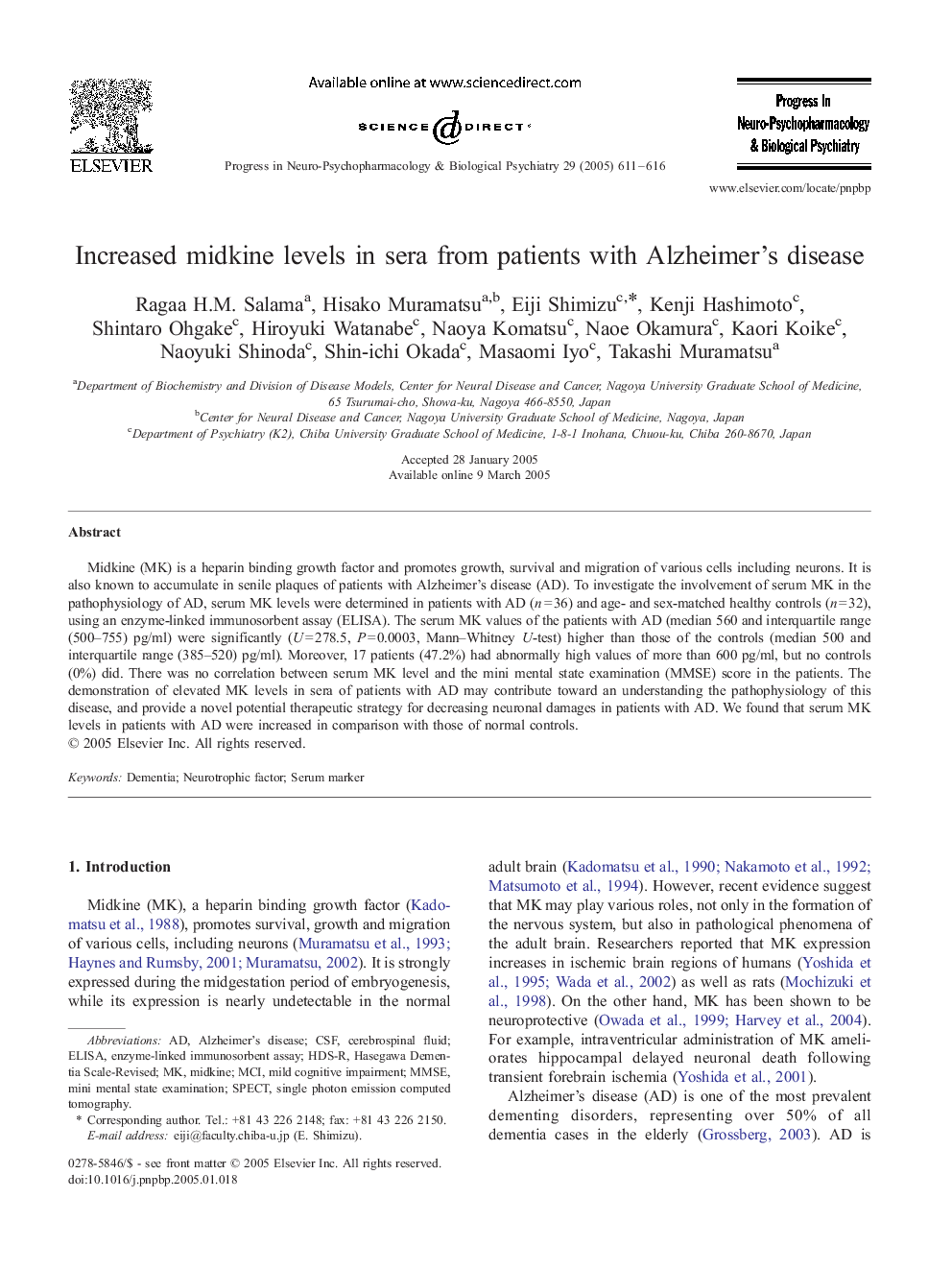| Article ID | Journal | Published Year | Pages | File Type |
|---|---|---|---|---|
| 9016425 | Progress in Neuro-Psychopharmacology and Biological Psychiatry | 2005 | 6 Pages |
Abstract
Midkine (MK) is a heparin binding growth factor and promotes growth, survival and migration of various cells including neurons. It is also known to accumulate in senile plaques of patients with Alzheimer's disease (AD). To investigate the involvement of serum MK in the pathophysiology of AD, serum MK levels were determined in patients with AD (n = 36) and age- and sex-matched healthy controls (n = 32), using an enzyme-linked immunosorbent assay (ELISA). The serum MK values of the patients with AD (median 560 and interquartile range (500-755) pg/ml) were significantly (U = 278.5, P = 0.0003, Mann-Whitney U-test) higher than those of the controls (median 500 and interquartile range (385-520) pg/ml). Moreover, 17 patients (47.2%) had abnormally high values of more than 600 pg/ml, but no controls (0%) did. There was no correlation between serum MK level and the mini mental state examination (MMSE) score in the patients. The demonstration of elevated MK levels in sera of patients with AD may contribute toward an understanding the pathophysiology of this disease, and provide a novel potential therapeutic strategy for decreasing neuronal damages in patients with AD. We found that serum MK levels in patients with AD were increased in comparison with those of normal controls.
Keywords
Related Topics
Life Sciences
Neuroscience
Biological Psychiatry
Authors
Ragaa H.M. Salama, Hisako Muramatsu, Eiji Shimizu, Kenji Hashimoto, Shintaro Ohgake, Hiroyuki Watanabe, Naoya Komatsu, Naoe Okamura, Kaori Koike, Naoyuki Shinoda, Shin-ichi Okada, Masaomi Iyo, Takashi Muramatsu,
